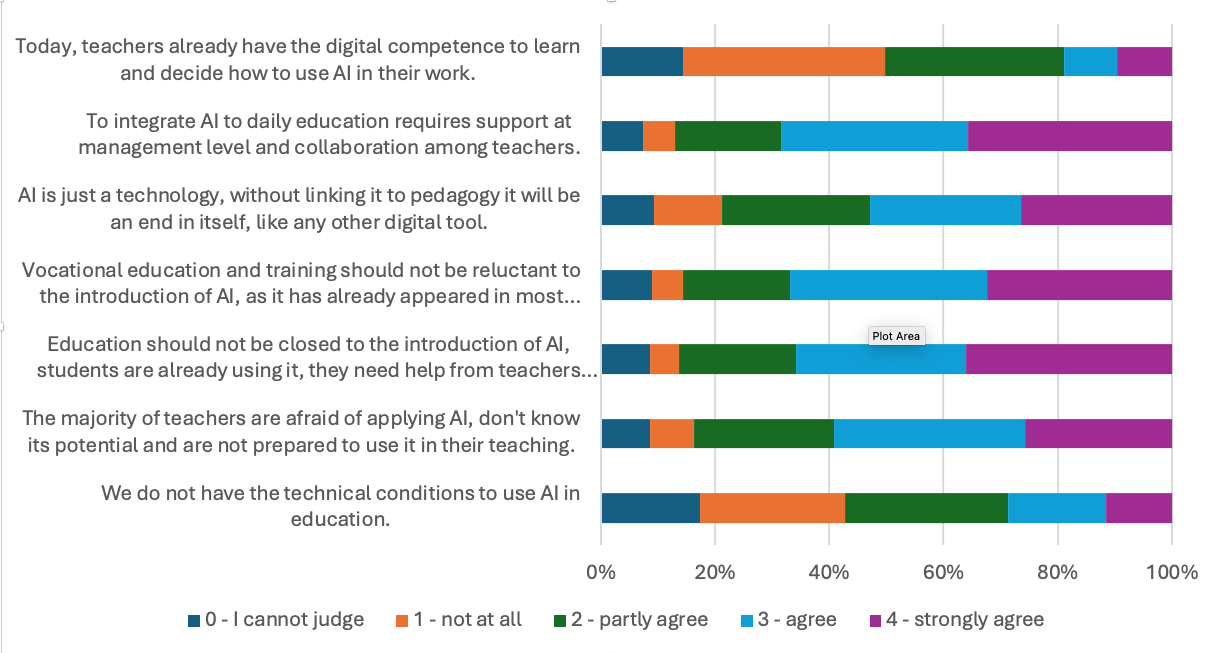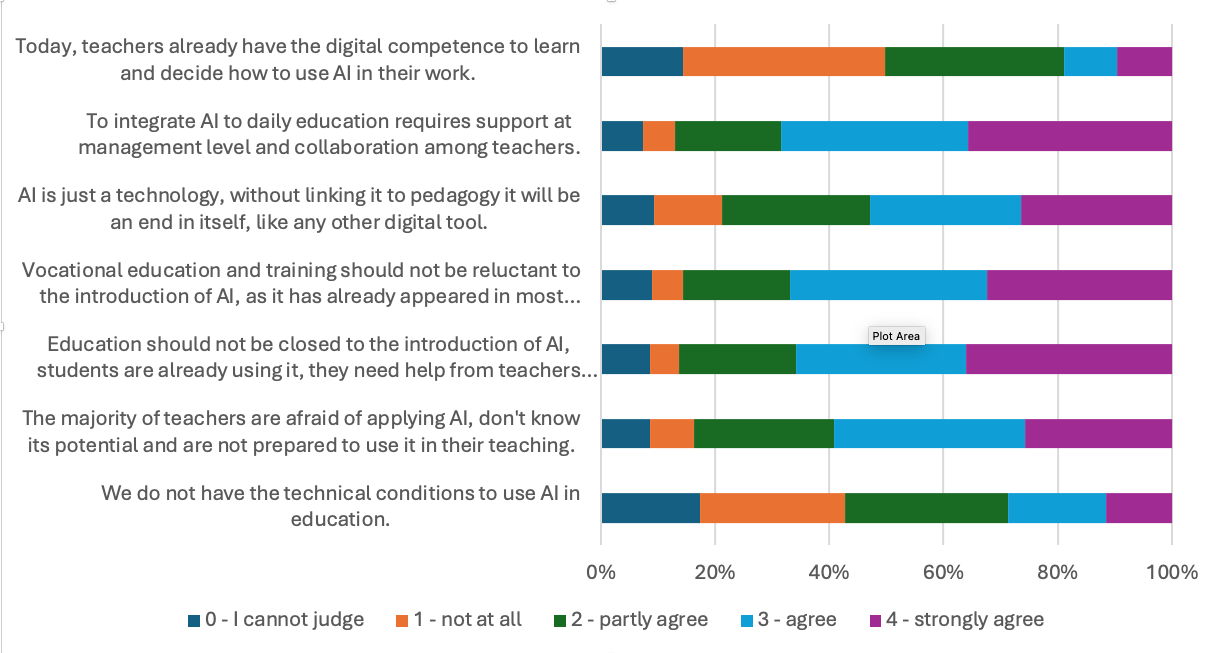
VETProfit: Multidisciplinary, Project-based Digital Learning Content for VET
With the VETProfit project, our aim is to bring vocational education and training closer to the needs of the labour market.
The problem
The labour market needs practical knowledge, but textbooks are mostly dominated by theory. Education often operates in isolation from the business world, widening the gap between the skills provided by schools and those required by employers.
Textbooks are not motivating enough for students born into the digital world and hardly include real-life examples from work situations.
While most workplaces expect employees to work in a project-oriented way, the project method and related forms of work are still not integrated into training, and a significant number of trainers are not yet prepared to apply the project method.
The multidisciplinary approach is difficult to integrate with traditional teaching methods, even though young graduates need to apply knowledge and skills from different subjects at the same time to solve problems in the workplace.
The solution
In this project, we try to bring vocational education closer to real labour market needs by preparing teachers to develop project tasks for their students based on real problems suggested by companies.
Activities and expected results
The project will be implemented in 6 steps with the following planned products:
- We will review the curricula, textbooks and teaching methods used in basic training in the IT and agricultural sectors in the partner countries participating in the project and see how they match up with what the labour market expects from a prospective employee. The results of the research will be published in a paper.
- Teachers in both sectors will be trained in the use of project methods, innovative assessment methods and the development of digital learning materials. This training will take place in an e-learning course.
- In partnership with teachers and labour market actors, we develop real-life projects for vocational students.
- We will create an online database application to publish reusable (micro)learning materials developed in a multidisciplinary approach, project-oriented, high quality and motivating, for free use by VET.
- We prepare students to implement projects through mini-courses.
- We will publish a methodological guide, based on our experience, in the form of a handbook, to be freely available to vocational teachers.
Project information
- Website: https://vetprofit.itstudy.hu/
- ID: 2021-1-HU01-KA220-VET-000025350
- Program: Erasmus+ KA2, Strategic partnership
- Target groups: heads of vocational training schools; vocational training teachers/educators; businesses in the agricultural and IT sectors
- Beneficiaries: vocational students, employers (agriculture and IT sector)
- Partner countries (and institutions): Hungary (iTStudy Hungary Számítástechnikai Oktató- és Kutatóközpont Kft. – coordinator; Magyar Kertészeti Szakképző Intézmények Szövetsége; Premontrei Szakgimnázium, Technikum és Kollégium; Discovery Center Nonprofit Kft.), Germany (DEULA-Nienburg GmbH), Italy (JAC Fondazione ITS – JobsAcademy)
- Duration: 1 November 2021 – 31 October 2024

Project news
The project starts in September of 2025. We share here the results of our preliminary research in 2024 aimed to get clear evidence, that there is a strong need for guiding vocational teachers to understand the basic concepts of artificial intelligence and to equip them with the knowledge and skills to effectively integrate artificial intelligence (AI) into their teaching.
As part of the proposal development process, the project partnership conducted an online survey to assess vocational teachers' readiness, attitudes, and needs related to the integration of Artificial Intelligence (AI) in education.
Survey period: 17–23 July 2024 Platform: EU Survey portal Sample size: 269 valid responses Countries represented: Hungary (29.89%), Italy (35.06%), Spain (21.77%), Lithuania (12.18%) Gender distribution: 56.83% female, 42.44% male Educational background: 68.27% held a master’s degree (MSc), but only 9.96% had vocational qualifications Teaching experience: 73% had over 11 years of experience |
The primary objective of the survey was to validate the following preliminary assumptions:
Vocational teachers often face uncertainty and hold misconceptions about AI.
Teachers acknowledge the increasing importance of AI in the labor market and recognize the need to adapt accordingly.
Although students are already engaging with AI technologies, many teachers feel unprepared to incorporate them into their teaching practices.
Educators show a willingness to adopt AI in the classroom but require targeted professional development to do so effectively.

MAIN CONCLUSIONS
Teachers expressed both optimism and caution regarding AI’s role in education. While 43% agreed that AI is essential for the labor market, over 50% believed that most teachers are not yet prepared to integrate AI into their classrooms. Furthermore, teachers stressed that effective AI integration requires managerial support and teacher collaboration.
The survey results clearly justify the relevance of the project’s aims, confirming that vocational teachers need targeted support to understand and apply AI in their teaching and that there is strong interest in student-centered, AI-integrated methodologies aligned with labor market demands.
More details in the document: Secondary School Teachers' Attitudes Toward AI Integration in Teaching - Survey across four European countries.
Information: maria.hartyanyi@itstudy.hu
